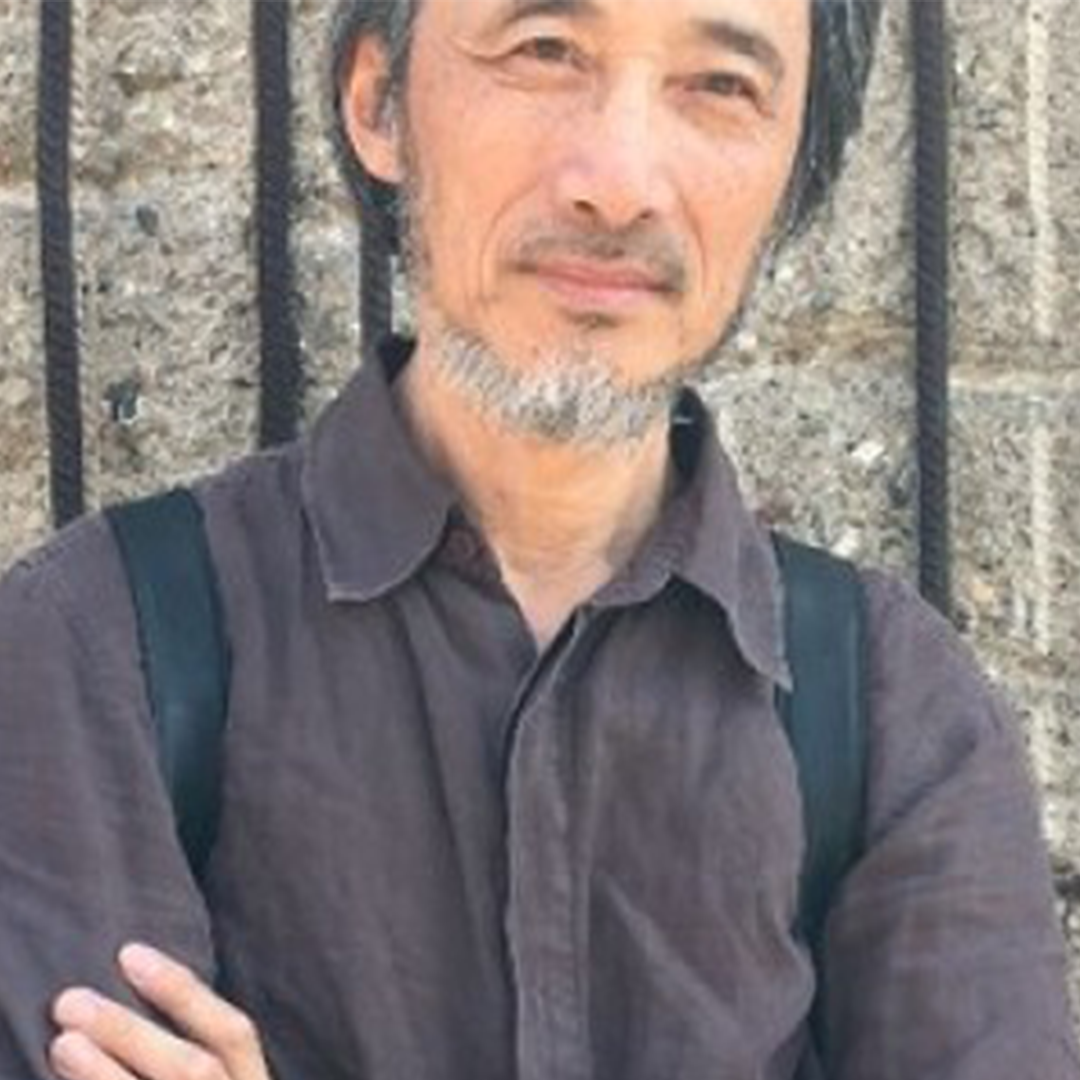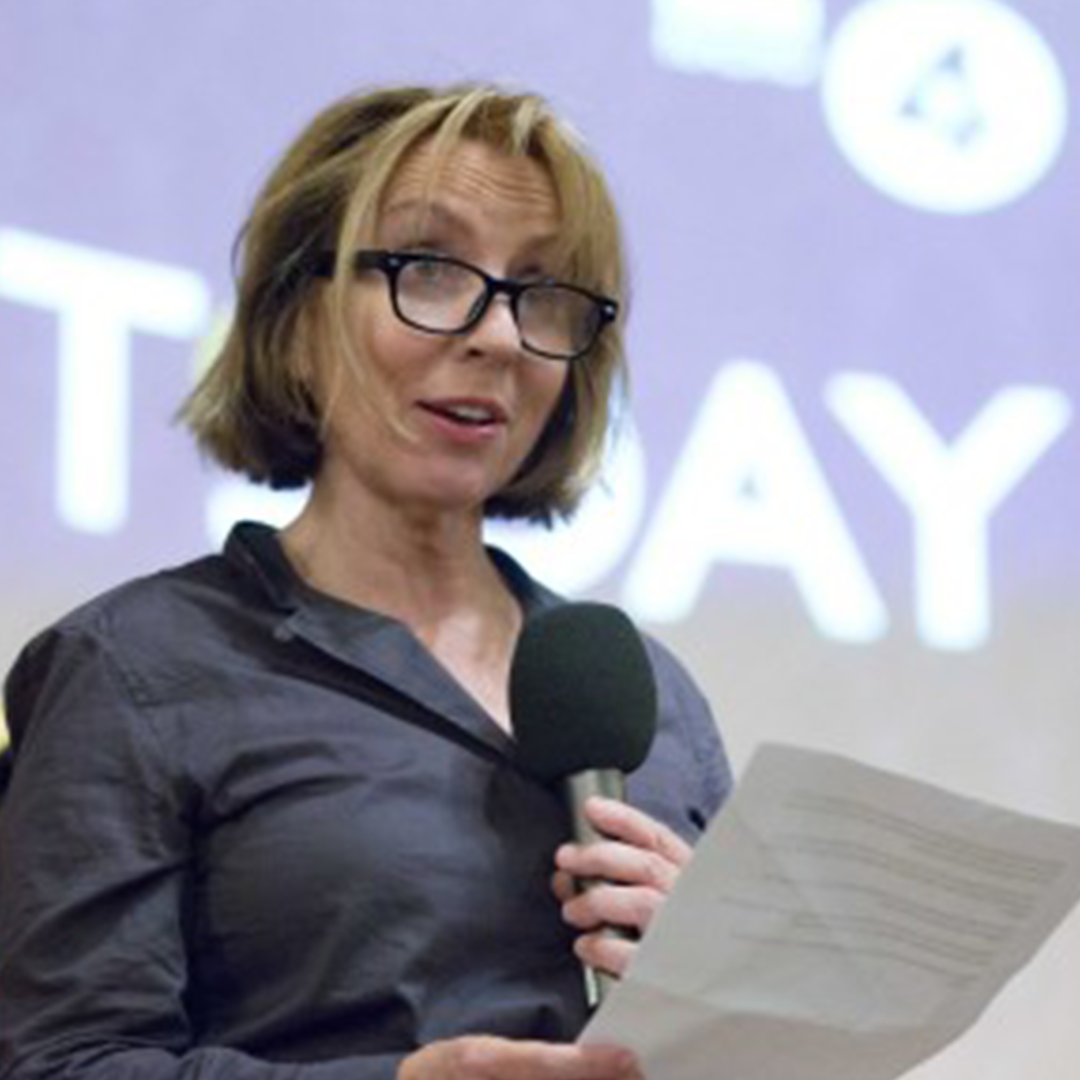28 Apr 2021 | Magazine, Magazine Editions, Volume 50.01 Spring 2021
Author
Ma Jian is an award-winning Chinese writer. His latest novel is China Dream. His work is banned in China
Singer
Gelareh Sheibani was born in Iran and took keyboard lessons as a youngter. She found a passion for singing in her teenage years but solo singing in the country was not permitted. After the release of the video for her song Nagoo Tanhaei and the follow-up she was arrested and prosecuted. She later left the country and now lives in Turkey
Journalist
Sarah Sands is Chair of the Gender Equality Advisory Council for G7 and a board member of Index on Censorship. Sands was the former editor of BBC’s Today programme
29 Jan 2021 | Greece, Opinion, Poland, Ruth's blog, Turkey
[vc_row][vc_column][vc_single_image image="116129" img_size="full" add_caption="yes"][vc_column_text]The last 12 months have been difficult for everyone. Whilst many of us have lost loved ones and tried to cope with the impact of lockdowns, social restrictions, closed businesses, redundancies, reduced wages, home schooling and the fear of illness, others have sought to exploit the situation – hoping that the world wouldn’t notice.
Our theme for the winter edition of Index on Censorship magazine was Masked by Covid – the underreported stories of 2020 which had been drowned out by the global public health emergency. There were simply too many for one edition of the magazine.
The news cycle has been dominated by Covid, Trump and Brexit with little else being able to break through. This in itself provided the ideal opportunity for leaders of repressive regimes to move against their citizens with impunity; after all the world wasn’t watching. But when you add the ‘legitimacy’ of emergency regulations to the mix under the guise of protecting the population against Covid, the perfect storm for repression and tyranny has been created.
When the virus spread last spring, Index started covering how it was affecting free speech around the world through a project called Disease Control. Documenting new legislation which closed local newspapers, new regulations which restricted or delayed access to government information, limitations on the free press, the end of the right to protest in numerous countries and arrests of political activists in dozens of countries.
As we all now await to be vaccinated and long for a return to normal, you would hope that maybe the dictators and authoritarian leaders, around the globe, would mitigate their actions knowing that the world might start to pay attention. Unsurprisingly that isn’t proving to be the case.
Only this week we have seen the Polish Government ban abortion, the Greek government propose a new university police force to deal with ‘trouble makers’ on campus and, in Russia, the coronavirus restrictions have been used as a cover to arrest Alexei Navalny’s allies – in the wake of his detention and the subsequent protests.
And it hasn’t just been Covid that has provided cover for oppression. In Turkey, on 27 December – when many of us were more focused on Netflix then the news - the government passed a new piece of anti-terrorism legislation, Preventing Financing of Proliferation of Weapons of Mass Destruction. I think most of us would welcome legislation that sought to stop the proliferation of WMDs.
Whilst this legislation has ostensibly been introduced to meet a United Nations Security Council counterterrorism resolution, unfortunately this new law actually goes well beyond that. It is an unfettered attack on civil society organisations across Turkey – with a clear emphasis on undermining those organisations which seek to protect minorities, especially the Kurdish population.
The legislation enables the Interior Ministry to replace board members of NGOs with state-appointed trustees. They can also suspend all operations and activities of an NGO if members are being prosecuted on terrorism charges – this would seem completely reasonable in many nation states, but as over 300,000 people are arrested for being a member of a terrorist group in Turkey every year, the definition of terrorist isn’t quite the global standard.
The legislation also gives the Governor’s office the right to undertake annual inspections of NGOs adding a new admin burden, international NGOs are also covered by new provisions and unsurprisingly financial assets and online donations to individual campaigns can be blocked by the government to "prevent terrorist financing and money laundering”.
Erdogan has just doubled down as an authoritarian leader and did so without global condemnation or even notice. It simply isn’t good enough…
All of these actions, and the many others from Hong Kong to Uganda, seek to cause division, undermine hope in the domestic population and entrench control. The world is getting smaller, technology means that we can know what is happening, as it happens, in every corner of the world. But too many people have stopped paying attention.
For Index it means that we have to double down and keep finding new ways to tell people’s stories so no one can claim ignorance.[/vc_column_text][/vc_column][/vc_row][vc_row][vc_column][three_column_post title="You may also want to read" category_id="41669"][/vc_column][/vc_row]
24 Dec 2020 | Opinion, Ruth's blog
[vc_row][vc_column][vc_single_image image="115942" img_size="full" add_caption="yes"][vc_column_text]2020 will undoubtedly be a year studied for generations, a year dominated by Covid-19.
A year in which 1.77 million people have died (as of this week) from a virus none of us had heard 12 months ago.
We have all lived in various stages of lockdown, some of our core human rights restricted, even in the most liberal of societies, in order to save lives.
A global recession, levels of government debt which have never been seen in peacetime in any nation.
Our lives lived more online than in the real world. If we’ve been lucky a year dominated by Netflix and boredom; if we weren’t so lucky a year dominated by the death of loved ones and the impact of long Covid.
Rather than being a year of hope this has been a year of fear. Fear of the unknown and of an illness, not an enemy.
Understandably little else has broken through the news agenda as we have followed every scientific briefing on the illness, its spread, the impact on our health services, the treatments, the vaccines, the new virus variants and the competence of our governments as they try to keep us safe.
But behind the headlines, there have been the stories of people’s actual lives. How Covid-19 changed them in every conceivable way. How some governments have used the pandemic as an opportunity to bring in new repressive measures to undermine the basic freedoms of their citizens. Of the closure of local newspapers – due to public health concerns as well as mass redundancies of journalists due to a sharp fall in revenue.
2020 wasn’t just about the pandemic though.
We saw worldwide protests as people responded under the universal banner of Black Lives Matter to the egregious murder of George Floyd.
In Hong Kong, the CCP enacted the National Security Law as a death knell to democracy and we saw protestors arrested and books removed from the public libraries – all under the guise of “security”.
The world witnessed more evidence of genocidal acts in Xinjiang province as the CCP Government continues to target the Muslim Uighur community.
In France, the world looked on in horror as Samuel Party was brutally murdered for teaching free speech to his students.
Genuine election fraud in Belarus led to mass protests, on many occasions led by women – as they sought free and fair elections rather than the sham they experienced this year.
In America, we lived and breathed the Presidential Election and witnessed the decisive victory of a new President – as Donald Trump continued to undermine the First Amendment, the free press and free and fair democracy.
In Thailand, we saw mass protests and the launch of the Milk Tea Alliance against the governments of Hong Kong, Thailand and Taiwan, seeking democracy in Southeast Asia.
In Egypt, the world witnessed the arrest of the staff of the EIPR for daring to brief international diplomats on the number of political prisoners currently held in Egyptian jails.
Ruhollah Zam was executed by his government for being a journalist and a human rights activist in Iran.
This is by no means an exhaustive list. From Kashmir to Tanzania to the Philippines we’ve heard report after report of horrendous attacks on our collective basic human rights. 72 years after United Nations adopted the Universal Declaration of Human Rights we still face daily breaches in every corner of the planet.
While Index cannot support every victim or target, we can highlight those who embody the current scale of the attacks on our basic right to free expression.
Nearly everybody has experienced some form of loneliness or isolation this year. But even so we cannot imagine what it must be like to be incarcerated by your government for daring to be different, for being brave enough to use your voice, for investigating the actions of ruling party or even for studying history.
So, as we come to the end of this fateful year I urge you to send a message to one of our free speech heroes:
- Aasif Sultan, who was arrested in Kashmir after writing about the death of Buhran Waniand has been under illegal detention without charge for more than 800 days;
- Golrokh Emrahimi Iraee, jailed for writing about the practice of stoning in Iran;
- Hatice Duman, the former editor of the banned socialist newspaper Atılım, who has been in jail in Turkey since 2002;
- Khaled Drareni, the founder of the Casbah Tribune, jailed in Algeria for two years in September for ‘incitement to unarmed gathering’ simply for covering the weekly Hirak protests calling for political reform in the country;
- Loujain al-Hathloul, a women’s rights activist known for her attempts to raise awareness of the ban on women driving in Saudi Arabia;
- Yuri Dmitriev, a historian being silenced by Putin in Russia for creating a memorial to the victims of Stalinist terror and facing fabricated sexual assault charges.
Visit http://www.indexoncensorship.org/JailedNotForgotten to leave them a message.
Happy Christmas to you and yours and here’s to a more positive 2021.[/vc_column_text][/vc_column][/vc_row][vc_row][vc_column][three_column_post title="You may also want to read" category_id="41669"][/vc_column][/vc_row]
1 Dec 2020 | India, Iran, Media Freedom, News, Pakistan, Russia, Saudi Arabia, Turkey, United Arab Emirates
[vc_row][vc_column][vc_row_inner][vc_column_inner width="1/2"][vc_hoverbox image="115781" primary_title="Aasif Sultan" hover_title="Aasif Sultan" hover_background_color="black" el_class="text_white"]Aasif covers human rights for the Kashmir Narrator and was jailed for two years in August for alleged involvement in “harbouring known terrorists”[/vc_hoverbox][/vc_column_inner][vc_column_inner width="1/2"][vc_hoverbox image="115782" primary_title="Golrokh Emrahimi Iraee" hover_title="Golrokh Emrahimi Iraee" hover_background_color="black" el_class="text_white"]Jailed for six years in 2016 for writing about the practice of stoning in Iran and "insulting Islamic sanctities"[/vc_hoverbox][/vc_column_inner][/vc_row_inner][vc_empty_space][vc_row_inner][vc_column_inner width="1/2"][vc_hoverbox image="115743" primary_title="Hatice Duman" hover_title="Hatice Duman" hover_background_color="black" el_class="text_white"]Hatice Duman is the former editor of the banned socialist newspaper Atılım, who has been in jail in Turkey since 2002[/vc_hoverbox][/vc_column_inner][vc_column_inner width="1/2"][vc_hoverbox image="115783" primary_title="Khaled Drareni" hover_title="Khaled Drareni" hover_background_color="black" el_class="text_white"]Khaled was jailed for three years in Algeria in August for covering the Hirak protest movement[/vc_hoverbox][/vc_column_inner][/vc_row_inner][vc_empty_space][vc_row_inner][vc_column_inner width="1/2"][vc_hoverbox image="115780" primary_title="Loujain al-Hathloul" hover_title="Loujain al-Hathloul" hover_background_color="black" el_class="text_white"]Loujain is a women's rights activist known for her attempts to raise awareness of the ban on women driving in Saudi Arabia, where she remains in jail[/vc_hoverbox][/vc_column_inner][vc_column_inner width="1/2"][vc_hoverbox image="115741" primary_title="Yuri Dmitriev" hover_title="Yuri Dmitriev" hover_background_color="black" el_class="text_white"]Yuri has been targeted for his work in identifying the graves of victims of Stalinist terror and has been jailed on baseless charges of sexual assault by the authorities[/vc_hoverbox][/vc_column_inner][/vc_row_inner][vc_empty_space][vc_column_text]2020 has been a terrible year for the world.
Unfortunately, for some human rights activists, free speech supporters and journalists, 2020 is just yet another year they have spent in prison, incarcerated on trumped-up charges for speaking out against the actions of authoritarian regimes.
As 2020 comes to a close, we want them to know that no matter how long they have been in jail, they have not been forgotten.
We have chosen six people whose plights must not be forgotten as part of our new #JailedNotForgotten campaign.
Early in 2021, we will send cards containing messages of support from the Index team but we are also asking for you to stand in solidarity with them. Please use the form below to personalise your message to the chosen six:
- Aasif Sultan, who was arrested in Kashmir after writing about the death of Buhran Wani and has been under illegal detention without charge for more than 800 days;
- Golrokh Emrahimi Iraee, jailed for writing about the practice of stoning in Iran;
- Hatice Duman, the former editor of the banned socialist newspaper Atılım, who has been in jail in Turkey since 2002;
- Khaled Drareni, jailed in Algeria for 'incitement to unarmed gathering' simply for covering the weekly Hirak protests that are calling for political reform in the country;
- Loujain al-Hathloul, a women's rights activist known for her attempts to raise awareness of the ban on women driving in Saudi Arabia;
- Yuri Dmitriev, a historian being silenced by Putin in Russia for creating a memorial to the victims of Stalinist terror and facing fabricated sexual assault charges.
Add your message of support using the form below.
You can also sign up to receive our weekly newsletter, which features news relating to freedom of expression issues around the world. You do not need to sign up to this to send a message. [/vc_column_text][gravityform id="50" title="false" description="true" ajax="false"][/vc_column][/vc_row][vc_row][vc_column][vc_single_image image="115746" img_size="full" onclick="custom_link" link="http://www.indexoncensorship.org/donate"][/vc_column][/vc_row]



